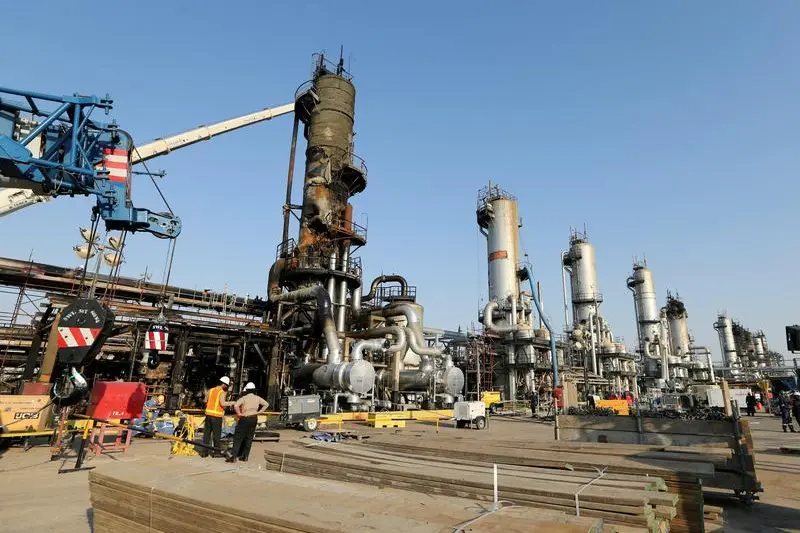PHOTO
(John Kemp is a Reuters market analyst. The views expressed are his own)
LONDON - Hedge fund managers remain cautious about the outlook for oil prices despite a short-term surge following the recent attacks on Saudi Arabia’s oil installations.
Amid record trading volumes, oil prices posted a record one-day rise on Sept. 16, the first trading day after the attacks.
However, most of this was probably attributable to short-term computerised market-making programmes ("bots") taking intra-day positions rather than fund managers shifting their strategic view.
Prior to the attacks, hedge fund managers had increased their bullish positioning in petroleum significantly as hopes rose for a trade truce between China and the United States.
But the attacks themselves have not added much to this economy-driven relief rally with the oil price rise flushing out some of the weaker bearish shorts but doing little to encourage the creation of new bullish long positions (https://tmsnrt.rs/2moI4Uz).
Hedge funds increased their net long position in petroleum futures and options by just 23 million barrels in the week to Sept. 17, an unexceptional amount and down from an increase of 122 million barrels the previous week.
Across the six most important petroleum futures and options contracts, portfolio managers reduced short positions by 17 million barrels but added just 5 million barrels of new long positions.
Funds were net sellers of ICE Brent (-9 million barrels) but buyers of NYMEX and ICE WTI (+11 million barrels), U.S. gasoline (+8 million), U.S. diesel (+5 million) and European gasoil (+8 million).
For each of the five contracts with net buying, short covering was a more important factor than establishing fresh long positions in contributing to the increase in net length.
In Brent, the contract with the most direct exposure to any loss of production caused by the attacks on Saudi Arabia, fund managers actually sold 9 million barrels of previous long positions.
For oil bears who remained downbeat about the economic outlook, the surge in prices proved painful, forcing some to close out positions which accelerated the price spike.
Most oil bulls, however, saw the price surge as temporary and no reason to increase long positions, while a small minority found a reason to realise profits on positions already accumulated before the attacks.
Saudi Arabia’s pledge to restore output by the end of the month and a U.S. promise to release emergency oil stocks if necessary have dampened initial concerns about a supply shortfall.
As a result, most portfolio managers seem to have concluded the spike in prices will prove temporary, warranting only minor adjustments to their previous positioning.
(Editing by Kirsten Donovan) ((john.kemp@thomsonreuters.com and on twitter @JKempEnergy))





















